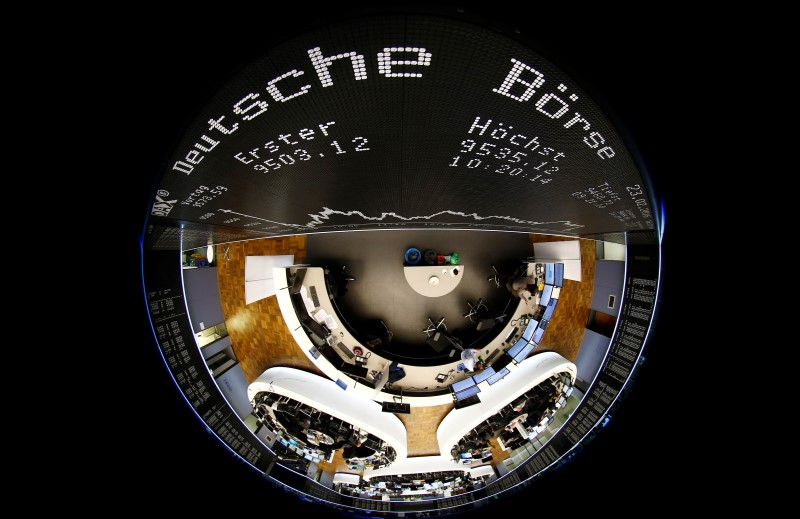By Nigel Stephenson
LONDON (Reuters) - Shares fell in Europe and Asia on Wednesday as oil prices dipped after Saudi Arabia effectively ruled out output cuts by major producers, lifting investor appetite for low-risk assets such as the Japanese yen and gold.
Top-rated government bonds were also in demand as the prospect of persistently low oil prices, which have fallen some 70 percent since mid-2014, raised concerns about weak global economic growth.
The yen
Sterling, however, plumbed a seven-year low around $1.3961 in Asian trading, on concern Britons might vote to leave the European Union in a June referendum. It last traded at $1.3976 (GBP), down 0.3 percent on the day and at 78.66 pence per euro (EURGBP=).
The pound has shed almost 3 percent against the dollar this week after several senior members of Prime Minister David Cameron's Conservative Party threw their support behind the campaign to leave the EU.
The euro fell 0.2 percent to $1.0991.
"The euro is also getting dragged down a bit by the EU concerns, so if you're looking for a safe haven you're probably less likely to choose the euro, more likely to choose the yen," said Rabobank currency strategist Jane Foley.
The pan-European FTSEurofirst 300 share index (FTEU3) fell 1.4 percent, led lower by commodity-related stocks (SXPP), which fell nearly 4 percent. Britain's FTSE 100 index (FTSE) lost 1 percent.
MSCI's broadest index of Asia-Pacific shares outside Japan (MIAPJ0000PUS) fell 1.2 percent, slipping further from Monday's six-week high.
Tokyo's Nikkei index closed down 0.9 percent on the lower oil prices and a stronger yen. Chinese shares bucked the trend, with the CSI 300 index (CSI300) of the largest listed companies in Shanghai and Shenzhen closing up 0.7 percent, led by industrial <.CSI300IN> and infrastructure <.CSI300II> stocks.
Oil prices remained weak after Saudi Oil Minister Ali Al-Naimi told oil executives on Tuesday that markets should not view the agreement by four major oil producers to freeze output at January levels as a prelude to production cuts.
While Naimi said he was confident more countries would join the pact, Iran was seen as unlikely to agree to the output cap because it won't allow the country to regain the market share it lost during sanctions.
Brent crude (LCOc1), the global benchmark, slid 50 cents, or 1.5 percent to $32.77 a barrel.
"I suspect few people were expecting a deal to cut production so his comments are hardly a surprise. Yet, the latest development seems to suggest that for oil producers to get more united they will have to feel more pain," said Ayako Sera, senior market economist at Sumitomo Mitsui Trust Bank.
SHALE
The low oil price has raised concerns that some U.S. shale oil producers could be forced into bankruptcy.
JPMorgan (N:JPM), the largest U.S. bank by assets, said on Tuesday it planned to increase provisions for expected losses on energy loans by $500 million.
The fall in stocks and oil pushed down yields on the lowest-risk government bonds. German 10-year yields
Copper

Gold